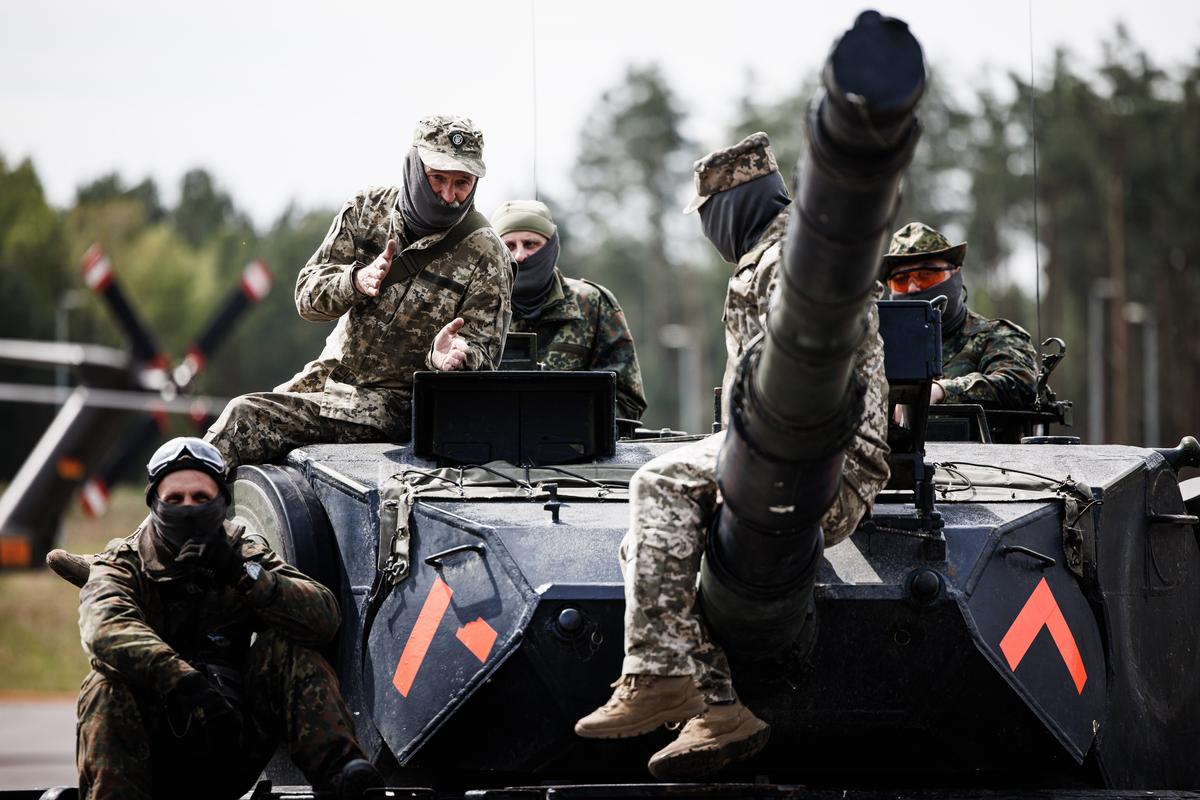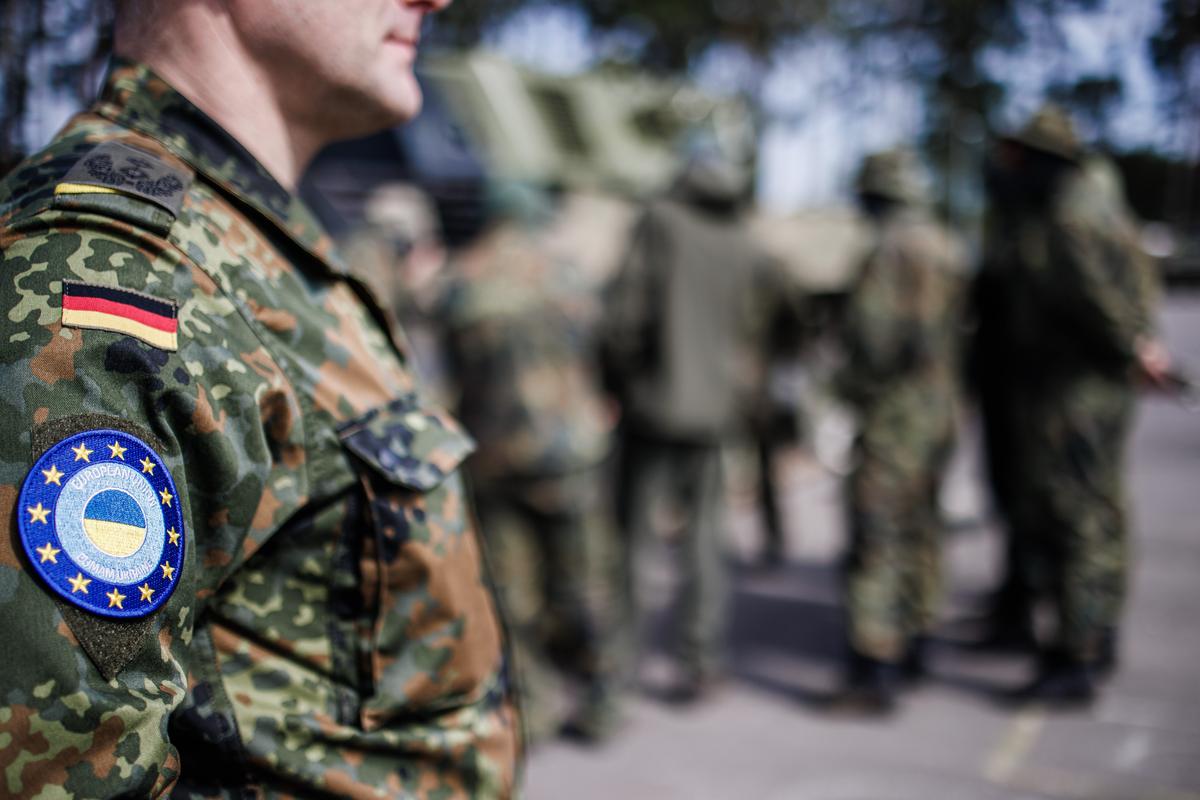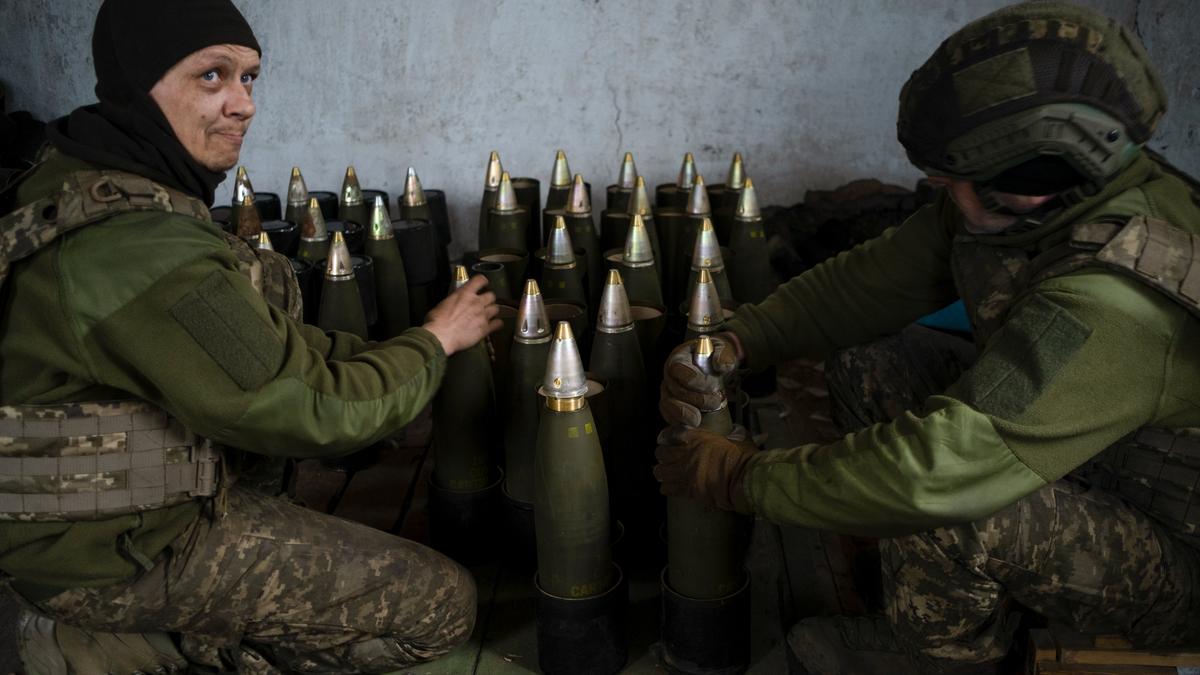The European Commission recently unveiled a plan for rearming the European Union and strengthening the bloc’s defence capabilities. By 2030, the Commission intends to arm Ukraine and develop member states’ militaries to the extent needed to deter or counter Russian aggression. To fund this effort, the Commission plans to borrow €800 billion over the next four years.
It is encouraging that Europe has finally woken up to the Russian threat and developed a credible medium-term defence strategy, especially as the transatlantic rift widens. But the bloc may not have as much time to prepare as it would like. Fortunately, there are ways to accelerate the plan’s implementation.
Perhaps the most important question concerns funding. Around one-quarter of the €800 billion that the Commission wants to mobilise can be obtained immediately by exchanging frozen Russian assets — 90% of which are in cash — for EU bonds. Given the reluctance of some member states to seize Russian state assets, exchanging them for, say, 20-year, zero-interest bonds could be a politically palatable compromise.
More generally, there is little to suggest that the seizure or exchange of these assets would materially affect the euro or the rule of law in Europe. In fact, it may even increase the likelihood of ultimately collecting compensation from Russia for the damages caused by its aggression.
Second, while information and soft-power threats may be less tangible than the cyber threats that the Commission’s plan rightly emphasises, they are just as dangerous and must be addressed. A prime example is the rising popularity of far-right and far-left populist forces supported by Russian and Chinese influence operations on TikTok and other social-media platforms. These political parties often promote the Kremlin’s agenda, including ending support for Ukraine.
The consequences of such forces coming to power could be devastating. Aside from aligning with Russia, their inclination to implement simplistic solutions to complex problems would create uncertainty and chaos, undermining the EU’s governing institutions and its internal cohesion. This institutional weakness and fractured unity would only spur Russian aggression.

Ukrainian soldiers on a Leopard 1A5 battle tank at a Bundeswehr training hub in Klietz, Germany, 5 May 2023. Photo: EPA-EFE / CLEMENS BILAN
Freedom of speech should not apply to disinformation peddlers. The EU must therefore ban Russian and Russia-related media, including seemingly independent outlets, and more closely monitor the use of TikTok, Telegram, and other social-media platforms for potential dissemination of pro-Kremlin propaganda. European politicians with ties to Vladimir Putin, like those who lobbied for the Nord Stream 2 project, should also face repercussions, so that the domestic costs outweigh the benefits conferred by these connections.
Similarly, the governance mechanisms of Europe’s rearmament effort should be “Orbán-proof” to prevent a single Kremlin-aligned European country — such as Hungary under Prime Minister Viktor Orbán — from derailing the project. Creating a “coalition of the willing” would also allow Canada, Japan, South Korea and other countries to join the effort.
Russia may seem like a powerful monolith, but in reality it is a paper tiger with a crumbling economy.
To be sure, Russian influence campaigns are not the only or even the main reason why populist far-right parties have gained traction in Europe. To erode support for these parties, European leaders must address the genuine problems that have fuelled their rise. For example, European leaders can weaken anti-immigrant sentiment by reforming migrant-support programmes in ways that encourage employment, such as by coupling integration services, including language training, with the gradual phase-out of social benefits.
The bloc can also counter populism by improving outcomes for European workers and economies. The very act of rearming will create new jobs, while soft-power efforts could also benefit European industry. The “Grain from Ukraine” humanitarian programme, which supplies Ukrainian products to countries in Africa and Asia facing food shortages, could easily be expanded to include European foodstuffs which the EU can finance through its Common Agricultural Policy.

A German soldier wears a European Union Military Assistance Mission Ukraine badge on his uniform at a Bundeswehr training hub in Klietz, Germany, 5 May 2023. Photo: EPA-EFE / CLEMENS BILAN
Lastly, the EU should use options other than hard force to mitigate the strategic threat posed by Russia. For example, EU leaders could discreetly assure the leaders of nations currently occupied by Russia of the bloc’s recognition of them as independent states. This has worked before: Polish leaders privately told Leonid Kravchuk, who subsequently became Ukraine’s first president, that Poland would recognise an independent Ukrainian state.
Russia may seem like a powerful monolith, but in reality it is a paper tiger with a crumbling economy. Regional elites will soon realise that they no longer have to tolerate the Kremlin’s racism, economic exploitation, and expansionism. In fact, many free countries, including Poland and Finland, emerged from the disintegration of the Russian Empire in 1917, after its defeat in World War I, and from the collapse of the Soviet Union in 1991, after its withdrawal from Afghanistan two years earlier. Extending the life of an imperial entity that is seemingly permanently at war makes little sense.
The EU must take these steps alongside its rearmament efforts, regardless of any negotiations or ceasefire agreements. Russia has shown that it can talk for years, as it did between 2015 and 2022, to no effect, and Putin will use any ceasefire to prepare for another attack, while also intensifying Russia’s hybrid warfare, including information operations and sabotage. Putin’s imperial ambitions will not be derailed by talking, and any hope of “striking a deal” with Russia will only help him reach these goals. If Europe wants to live freely, it must act fast.
Anastassia Fedyk is assistant professor of finance and Yuriy Gorodnichenko is professor of economics at the University of California, Berkeley. Ilona Sologoub is editor of VoxUkraine.
This article was first published by Project Syndicate. Views expressed in opinion pieces do not necessarily reflect the position of Novaya Gazeta Europe.
Join us in rebuilding Novaya Gazeta Europe
The Russian government has banned independent media. We were forced to leave our country in order to keep doing our job, telling our readers about what is going on Russia, Ukraine and Europe.
We will continue fighting against warfare and dictatorship. We believe that freedom of speech is the most efficient antidote against tyranny. Support us financially to help us fight for peace and freedom.
By clicking the Support button, you agree to the processing of your personal data.
To cancel a regular donation, please write to [email protected]

